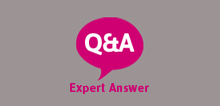How do I become a counsellor?
I’m a trained receptionist but I’d like to retrain to be a counsellor. My ultimate goal is to travel and counsel children, but I have no idea how to go about doing it. Would you be able to point me in the right direction?
How to change your career path and become a counsellor
Even if you have your foundation degrees in English and Maths, you can still go on to get a diploma in counselling. Loads of people consider changing their career path at some point or another. It doesn’t have to be this huge thing, unless you let it be. For some more general information on changing careers, check out this article.
If you’re sat there googling, ‘How do I become a counsellor?’ – your search is over. We’re bringing you the facts right here. Becoming a counsellor requires a range of things, including specific people skills. Learndirect explains that you would need:
- Good communication skills.
- An ability to establish trusting relationships.
- An ability to put clients at ease, to listen to them and reflect on what they’ve said.
- To be patient, tolerant and sensitive.
- To take an empathetic and non-judgmental approach.
- You have to be self-aware and able to reflect on your own thoughts, feelings and values.
Since you’re in the early stages of developing this career route, there’s some flexibility. Make sure you test the water before you dive right in. We’d recommend that you try various evening courses at local colleges first. This’ll give you a taste of what becoming a counsellor will be like.
The British Association of Counselling and Psychotherapy (BACP) also suggests taking a taster course. This is because “counselling training requires a form of personal therapy which can cause some difficult feelings. It often takes time for students to confront them”. These courses usually take around eight to 12 weeks to complete.
Formal training to become a counsellor
So, you’re probably still wondering ‘How do I become a counsellor with legitimate qualifications?’
The next step in training to become a counsellor involves obtaining a certificate in counselling skills. You can achieve these at local colleges throughout the UK. Generally speaking, courses are part time with a mixture of in-person and remote learning for the duration of a year.
Higher education counselling qualifications
Unfortunately, the certificate is not the end of your professional development. You’ll still have to complete core practitioner training. This could be either a diploma or a degree in counselling or psychotherapy. Either one will include detailed study and work placements so that you can get some experience. We suggest choosing a course that has been accredited by the British Association for Counselling and Psychotherapy. To help you out, here’s a list of their accredited courses. Once you have those qualifications and are a practising counsellor, you’ll be eligible to be a member of the UK council for psychotherapy (a professional body for all registered clinical psychotherapists and psychotherapeutic counsellors, including private practice).
Volunteering as a counsellor
You may also find it helpful to volunteer in the specific sector you’re interested in. For example, you could try working with a helpline or mentoring children. You could even volunteer right here at The Mix
Volunteering at counselling services can give you a good introduction to counselling. It can also give you the chance to develop your skills and gain valuable counsellors work experience. The Mix has loads of resources on volunteering here, if you wanna find out more.
If you do choose to explore this career path further, the BACP provides information about counselling training. Plus you can call learndirect on 0800 100 900 for some extra advice.
Got questions about becoming a counsellor or changing career? Or experiences you’d like to share? We would love to hear from you on our discussion boards.
Answered by on 25-Sep-2012
Next Steps
- Chat about this subject on our Discussion Boards.
No featured article






